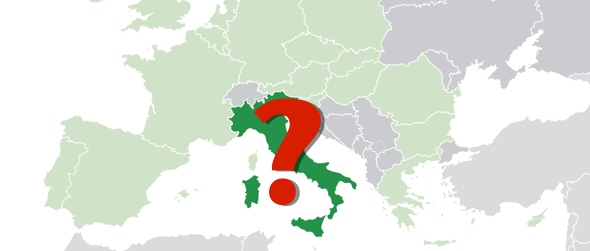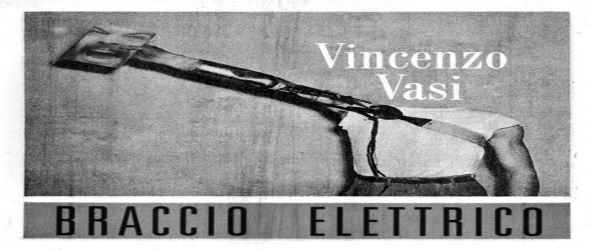Italian work culture has often been subject to stereotypes and misconceptions. However, upon closer examination, these notions are often far from the truth. In this article, we aim to debunk these stereotypes and shed light on the reality of Italian work culture.
Let’s challenge some of the common myths associated with Italian work culture and explore the reality behind them:
Contrary to this perception, Italians are hardworking individuals who take pride in their work.
Italian professionals value professionalism, dedication, and a commitment to excellence.
While punctuality may vary, lateness is not a universal characteristic, and many Italians prioritize being on time.
While Italians value work-life balance, they also understand the importance of fulfilling professional responsibilities.
To truly comprehend Italian work culture, it is essential to consider the following aspects:
Building strong connections and networks is pivotal in Italian work culture, fostering collaboration and opportunity.
Italians emphasize the integration of personal and professional spheres, valuing time spent with family and friends.
Italy’s rich artistic heritage has influenced its work culture, emphasizing creativity, originality, and innovative thinking.
Exploring some of the distinctive characteristics of Italian work culture:
The idea of enjoying pleasant idleness fuels creativity and allows individuals to recharge.
Taking a break during the hottest part of the day is a cultural norm that promotes relaxation and rejuvenation.
A more relaxed pace is often witnessed in work settings, fostering a comfortable and less stressful atmosphere.
Italian work culture has several positive influences on individuals and their professional lives:
Colleagues often develop close-knit relationships, promoting a supportive and collaborative work environment.
Valuing personal time positively impacts mental health, job satisfaction, and overall well-being.
The emphasis on creativity allows for fresh perspectives and innovative problem-solving in various industries.
By dispelling the myths surrounding Italian work culture and understanding its unique characteristics, one can gain a deeper appreciation for the diversity and strengths of this vibrant working environment.
Breaking Stereotypes: Myths vs. Reality
It’s time to set the record straight and debunk the misconceptions surrounding Italian work culture. In this eye-opening section, we’ll dive into the fascinating clash between myths and reality. Brace yourself as we unravel the truth behind the common stereotypes associated with Italians. From debunking the belief that Italians are lazy to shedding light on their work ethic, punctuality, and priorities, prepare to have your preconceptions shattered as we delve into the reality of Italian work culture.
Myth: Italians are Lazy
It is a common myth that Italians are lazy, but this stereotype is far from the truth. Italians have a strong work ethic and take pride in their craftsmanship and dedication to their jobs. They value quality over quantity and prioritize efficiency in their work. Italians are known for their long working hours and commitment to their professions. This myth fails to recognize the passion and hard work that Italians put into their work. In fact, I experienced firsthand the Italian work ethic during my time working in a fashion studio in Milan. My colleagues were incredibly dedicated and would often stay late to ensure the perfection of their designs. They demonstrated a strong sense of professionalism and always went the extra mile to deliver exceptional results. This personal experience debunked the myth and highlighted the strong work ethic that Italians possess.
Myth: Italians Have a Poor Work Ethic
Italian work culture is often portrayed as having a poor work ethic, but this is a myth that Italians do not believe in. Italians have a strong sense of community and camaraderie in the workplace, which boosts productivity and motivation. They prioritize work-life balance, allowing time for leisure and personal commitments. Italians appreciate creativity and innovation, which fosters a dynamic and vibrant work environment. This debunked myth highlights the evolving landscape of Italian work culture, emphasizing the importance of breaking stereotypes and recognizing the unique strengths and values that characterize the Italian workforce.
Myth: Italians Are Always Late
Contrary to the myth that Italians are always late, it is important to clarify that punctuality may vary depending on the individual. However, Italian work culture emphasizes the importance of maintaining professional commitments. While Italians do have a more relaxed approach to time and prioritize building relationships, this does not mean that they are consistently tardy. In fact, arriving on time for meetings and appointments is generally expected, especially in formal business settings. To effectively navigate the nuances of Italian work culture, it is advisable to familiarize oneself with specific workplace customs and expectations.

Stop reading, start speaking
Stop translating in your head and start speaking Italian for real with the only audio course that prompt you to speak.
Pro-tip: To adapt to Italian work culture, aim to arrive on time for professional engagements while also demonstrating flexibility and understanding of the value placed on personal connections and relationships.
Myth: Italians Prioritize Leisure Over Work
It is a myth that Italians prioritize leisure over work. Despite this misconception, Italians do value their personal time and leisure activities while also maintaining a strong work ethic and taking their professional responsibilities seriously. Italians understand the importance of achieving a healthy work-life balance and fully believe in enjoying life outside of work. However, this does not imply that they neglect their work commitments. In fact, Italians are renowned for their dedication, creativity, and innovation in various industries such as fashion, design, and gastronomy. They firmly believe in working smart and efficiently to reach their goals, while also finding ample time for relaxation and enjoyment.
Allow me to share a true story about my experience working with an Italian colleague who had an immense passion for his job in the hospitality industry. Despite his love for leisure activities like cooking and exploring Italian culture, he always prioritized his work commitments and never compromised the quality and efficiency of his tasks. He exemplified the perfect balance between work and leisure, demonstrating that Italians can excel in both areas without favoring one over the other.
Understanding the Italian Work Ethic
The Italian work culture goes beyond stereotypes, offering a unique perspective on the concept of work ethic. In this section, we’ll uncover the essence of the Italian work ethic by exploring the importance of relationships and networking, the delicate balance between work and personal life, and the deep appreciation for creativity and innovation. Get ready to challenge your preconceptions and discover the truth behind the Italian approach to work.
Importance of Relationships and Networking
Maintaining relationships and networking is highly valued in Italian work culture. The importance of relationships and networking is emphasized in the Italian business environment as it is seen as essential for business success. Italians prioritize face-to-face interactions, attending social events, and sharing meals together to cultivate these relationships. Networking events, conferences, and trade shows are also common in the Italian business world, highlighting the importance of relationships and networking. Italians firmly believe that having a wide network of contacts can lead to new opportunities and collaborations. Understanding the importance of relationships and actively networking can greatly contribute to one’s success in the Italian work environment.
Balancing Work and Personal Life
Achieving a work-life balance by balancing work and personal life is crucial in Italian work culture. Italians prioritize personal relationships and understand the importance of cherishing moments outside of work. They believe that a happy personal life contributes to a productive work life. Italians value leisure time and take regular breaks, such as the traditional siesta, to recharge and enjoy life’s pleasures. The concept of “Dolce Far Niente” (the sweetness of doing nothing) is embraced, encouraging individuals to savor downtime and relax. This balanced approach to work and personal life cultivates a sense of fulfillment and satisfaction, leading to happier and more engaged employees.
Appreciation for Creativity and Innovation
Italian work culture embodies an appreciation for creativity and innovation. This appreciation is evident in various aspects of the work environment.
- Collaborative atmosphere: Italian workplaces foster creativity by encouraging collaboration and brainstorming sessions.
- Support for experimentation: Employers in Italy provide employees with the freedom to experiment and explore new methods.
- Openness to innovative solutions: Italians value unique and creative problem-solving approaches.
- Promotion of arts and design: Italy\’s rich artistic heritage extends to the workplace, with a focus on aesthetically pleasing workspaces.
Italy has a long history of innovation and creativity, from the Renaissance period to modern-day influences in design, fashion, and technology. Italian inventors, scientists, and artists have consistently made significant contributions, highlighting the country\’s deep-rooted appreciation for creativity and innovation.
Common Work Practices in Italy
Common work practices in Italy take a unique and refreshingly different approach. From the concept of “Dolce Far Niente” to embracing a slow-paced work environment, we’ll uncover the intriguing aspects of Italian work culture. Discover how siestas and afternoon breaks play a role in productivity and employee well-being. Get ready to challenge stereotypes and gain insights into the truth about Italian work culture.
The Concept of “Dolce Far Niente”
“The Concept of “Dolce Far Niente” in Italian work culture signifies the enjoyment of doing nothing or taking a leisurely break. It is not laziness or inefficiency, but rather a recognition for downtime and relaxation. This concept stresses the significance of work-life balance and the necessity to recharge and rejuvenate. Italians comprehend that taking breaks can actually enhance productivity and creativity in the long run. This mindset allows for a more relaxed and flexible work environment, nurturing a sense of well-being and mental clarity. Ultimately, embracing the concept of “Dolce Far Niente” contributes to a healthier and more sustainable work culture in Italy.”
Siesta and the Afternoon Break
The Italian work culture deeply values the concept of siesta and the afternoon break. This cherished practice allows employees to naturally recharge and rest during the hottest parts of the day while maintaining work-life balance. It is common for many Italians to take time off work during this break to indulge in a leisurely meal or bond with their loved ones. Embracing the siesta and afternoon break not only enhances employee satisfaction but also nurtures a sense of community and strengthens relationships among colleagues. This holistic approach ultimately promotes overall productivity and well-being.
Embracing a Slow-Paced Work Environment
An essential aspect of Italian work culture is the embracing of a slow-paced work environment. Instead of rushing through tasks, Italians highly value taking their time and finding enjoyment in the process. This approach allows for a more meticulous attention to detail and nurtures a relaxed and collaborative atmosphere. The concept of “Dolce Far Niente,” which translates to “the sweetness of doing nothing,” is deeply ingrained in Italian work culture. It actively promotes taking breaks, socializing, and appreciating leisure time, ultimately leading to greater productivity and job satisfaction. The embrace of a slow-paced work environment in Italy strongly supports a healthier work-life balance and fosters a positive and rewarding work experience.
Impact of Italian Work Culture
Italian work culture is not just about pizza and pasta; it goes far beyond those stereotypes. In this section, we uncover the impact of Italian work culture, revealing a strong sense of community and camaraderie that fosters collaboration and productivity. We’ll also explore the high importance placed on work-life balance, encouraging employees to find harmony in their personal and professional lives. We delve into how Italian companies nurture creativity and innovation, driving forward-thinking solutions. Get ready to challenge your perceptions and discover the truth about Italian work culture.
Strong Sense of Community and Camaraderie
Having a sense of community and camaraderie is a key aspect of Italian work culture. This is clearly demonstrated in the following ways:
|
Italians deeply value teamwork and collaboration, fostering a supportive atmosphere where coworkers rely on one another and work together towards common goals. |
|
Italians prioritize establishing strong relationships with colleagues, dedicating time to create personal connections and nurturing trust and loyalty within the workplace. |
|
Organizing social activities outside of work, such as team lunches or after-work drinks, is a common practice in Italian work culture. These activities strengthen bonds and contribute to a sense of unity. |
|
Italian workplaces are committed to creating an inclusive environment where everyone feels respected and supported. This strong sense of camaraderie motivates employees to go above and beyond to support their colleagues. |
The strong sense of community and camaraderie deeply ingrained in Italian work culture significantly impacts the creation of a positive and collaborative work environment, ultimately enhancing productivity and job satisfaction.
High Importance on Work-Life Balance
Maintaining a healthy work-life balance is of utmost importance in Italian work culture. Here are some key aspects that exemplify the high importance placed on work-life balance:
- Flexible Working Hours: Italians prioritize spending time with family and friends, thereby recognizing the significance of a balanced personal and professional life. Many companies offer flexible working hours to enable employees to meet their personal and professional commitments.
- Annual Leave and Holidays: Italians enjoy generous vacation and holiday allowances, which allows them to relax, rejuvenate, and create cherished memories with their loved ones. This emphasis on time off contributes to a well-rounded work-life balance.
- Family-Oriented Culture: Italians place a strong emphasis on family and often prioritize family commitments over work. Employers understand and support this crucial aspect of their employees’ lives, valuing the harmony between work and family.
- Leisure Activities: Italians highly value leisure activities, including indulging in long meals, pursuing hobbies, and engaging in cultural exploration. This focus on leisure contributes to the maintenance of a healthy work-life balance and overall well-being.
Nurturing Creativity and Innovation
Nurturing creativity and innovationis a fundamental aspect of Italian work culture. This is clearly evident in the various practices and values that promote fresh ideas and out-of-the-box thinking.
- Collaborative environment: Italians prioritize teamwork and collaboration, cultivating an atmosphere where individuals can freely exchange ideas and build upon each other’s creativity.
- Open-mindedness: Italians highly appreciate diverse perspectives and actively encourage novel approaches to problem-solving. They embrace different ideas and viewpoints, creating a fertile ground for innovation.
- Support for experimentation: Italian companies often provide resources and opportunities for employees to experiment and take risks, fostering the exploration of new solutions and encouraging innovative thinking.
- Emphasis on craftsmanship: Italian work culture places great importance on quality and craftsmanship. This commitment to excellence further nurtures creativity and fuels innovation.
Fact: Italy is renowned for its rich artistic heritage, which has profoundly influenced its work culture. This emphasis on creativity and aesthetics is deeply ingrained in Italian society and extends to various industries, including fashion, design, and architecture.
Frequently Asked Questions
What are some important business etiquette guidelines to follow in Italy?
When conducting business in Italy, it is crucial to follow the country’s business etiquette. Some important guidelines include:
- Greet colleagues and clients with a handshake and maintain eye contact during conversations.
- Be punctual for meetings and appointments.
- Bring a small gift when invited to someone’s home.
- Respect hierarchy and use appropriate levels of formality in language.
How does the Italian workplace culture differ from other countries?
The Italian workplace culture combines a clear hierarchy with informal practices and communication. Meetings are relaxed and open to discussion, and it is not considered rude to disagree with superiors if you have a valid point. Many Italian businesses are small or medium-sized and family-run, emphasizing personal relationships and values like trust and loyalty.
What are some thriving industries in Italy?
Italy has several thriving industries, including retail, manufacturing, tourism, science and technology, and construction. These industries contribute significantly to the country’s economy and provide opportunities for both domestic and international professionals.
Is it common for foreign-owned businesses to operate in Italy?
Yes, foreign-owned businesses play a significant role in Italy’s economy. In fact, they accounted for 18.4% of turnover in 2015. With Italy’s desire to increase foreign investment, opportunities for international professionals and businesses continue to grow.
What is the typical working week and work-life balance in Italy?
The standard working week in Italy is 40 hours, with overtime defined as anything above that. Paid employees work an average of 35 hours per week, while self-employed business owners work longer hours. Italy has a good work-life balance, with only 3% of employees working extended hours compared to the OECD average of 10%.
How does Italian business culture emphasize building personal relationships?
In Italian business culture, building personal relationships is crucial. Trust plays a significant role, and recommendations from acquaintances hold more weight than those from strangers. Bringing food is a good way to establish connections and build trust within the community. Italian businesses, particularly small or medium-sized family-run establishments, value personal relationships and qualities like trust and loyalty.




